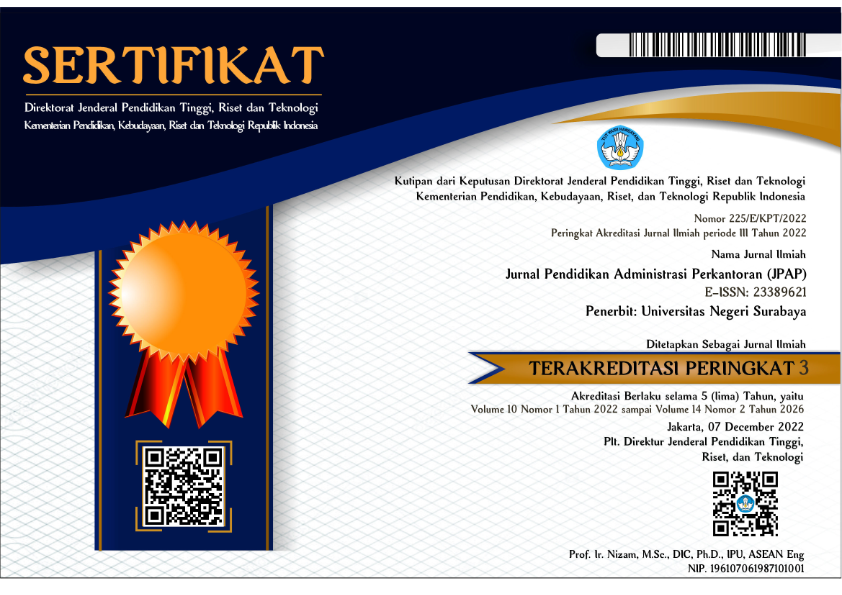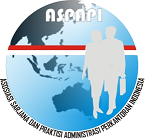The Influence of Digital Literacy, Teaching Experiences, Teaching Professional Perception, and Self-Efficacy as Mediating on Professional Competence as Prospective Teacher
DOI:
https://doi.org/10.26740/jpap.v13n2.p514-527Abstract
Phenomenon/Issue: The professional competence of prospective teachers in Indonesia remains below standards, as evidenced by low Teacher Competency Test (TCT) scores. Despite various training programs, many teacher candidates still struggle with essential teaching competencies, particularly in adapting to digital education and developing professional confidence.
Purpose: This study examines how teaching experience, digital literacy, and teaching professional perception influence professional competence among teacher candidates, with self-efficacy as a mediating variable. It aims to identify key factors that can enhance teacher preparation programs.
Novelty: This research innovatively integrates four crucial variables in teacher development and employs self-efficacy as a mediator, offering new insights into the psychological mechanisms behind professional competence formation.
Research Methods: Using a quantitative approach with PLS-SEM analysis, data were collected through online questionnaires from 131 Office Administration Education students at Universitas Negeri Semarang.
Results: All three independent variables significantly affected professional competence both directly and through self-efficacy mediation. Teaching experience showed the most substantial impact (β=0.37, p<0.01), followed by digital literacy (β=0.29, p<0.01) and positive teaching professional perception (β=0.24, p<0.05). Self-efficacy accounted for 32% of the variance in professional competence.
Research Contributions: The study provides empirical evidence for improving teacher education programs by emphasizing practical teaching experience, digital skills development, and positive professional socialization. It demonstrates how self-efficacy serves as a crucial
psychological bridge between external factors and professional competence development.
 Abstract views: 129
,
Abstract views: 129
, PDF Downloads: 123
PDF Downloads: 123









